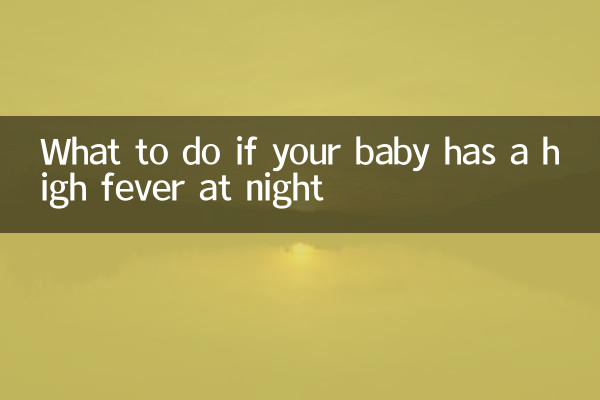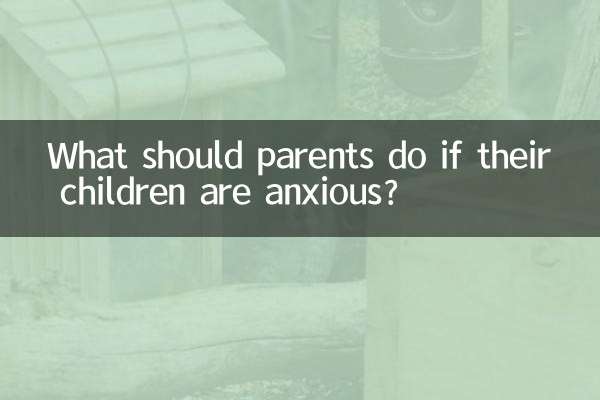What to do if your baby has a high fever at night
Recently, many parents have discussed the issue of "baby having high fever at night" on social media and parenting forums. High fever at night often leaves parents at a loss, especially new parents. This article will combine the hot topics and hot content on the Internet in the past 10 days to provide you with a structured and practical response plan.
1. Common causes of high fever in babies

According to pediatrician advice and parent feedback, common causes of high nighttime fevers in babies include:
| Reason | Symptoms |
|---|---|
| Viral infections (such as colds, flu) | Cough, runny nose, sore throat |
| Bacterial infections (such as otitis media, pneumonia) | Ear pain, shortness of breath |
| vaccination reaction | Redness, swelling and low-grade fever at the injection site |
| Acute rash in young children (roseola) | Rash occurs 3-4 days after high fever |
2. Emergency measures
When a baby develops a high fever at night, parents can take the following steps:
| steps | Specific operations |
|---|---|
| 1. Measure body temperature | Use an ear thermometer or armpit thermometer to confirm whether it is ≥38.5℃ |
| 2. Physical cooling | Wipe with warm water (neck, armpits, groin), reduce clothing |
| 3. Drug intervention | Take fever-reducing medication (such as ibuprofen or acetaminophen) according to your weight |
| 4. Replenish moisture | Feed warm water or breast milk in small amounts and frequently to prevent dehydration |
3. When do you need immediate medical attention?
The following situations require medical attention as soon as possible:
1.Body temperature exceeds 39.5℃And it continues without retreat;
2. The baby appearsConvulsions, confusion;
3. accompanyVomiting, rashordifficulty breathing;
4. Age less than3 monthsThe baby has a fever.
4. Common misunderstandings among parents
According to recent popular science content from parenting bloggers, the following practices need to be avoided:
| Misunderstanding | Correct way |
|---|---|
| Alcohol bath to cool down | May cause alcohol poisoning, use warm water instead |
| Cover sweat to reduce fever | Increased body temperature, ventilation should be maintained |
| Alternate use of fever reducers | Follow your doctor’s advice to consume only one type to avoid overdose. |
5. Long-term care recommendations
1.Record body temperature changes: Measure every 2 hours and observe the trend;
2.Keep the environment comfortable: Room temperature is controlled at 24-26℃, humidity 50%-60%;
3.diet modification: Choose easy-to-digest porridge and vegetable and fruit purees;
4.Psychological comfort: Hug more and comfort softly to reduce baby's anxiety.
Through the above structured suggestions, we hope to help parents deal with their babies' high fever at night more calmly. If symptoms persist or worsen, be sure to contact a professional medical institution promptly.

check the details

check the details